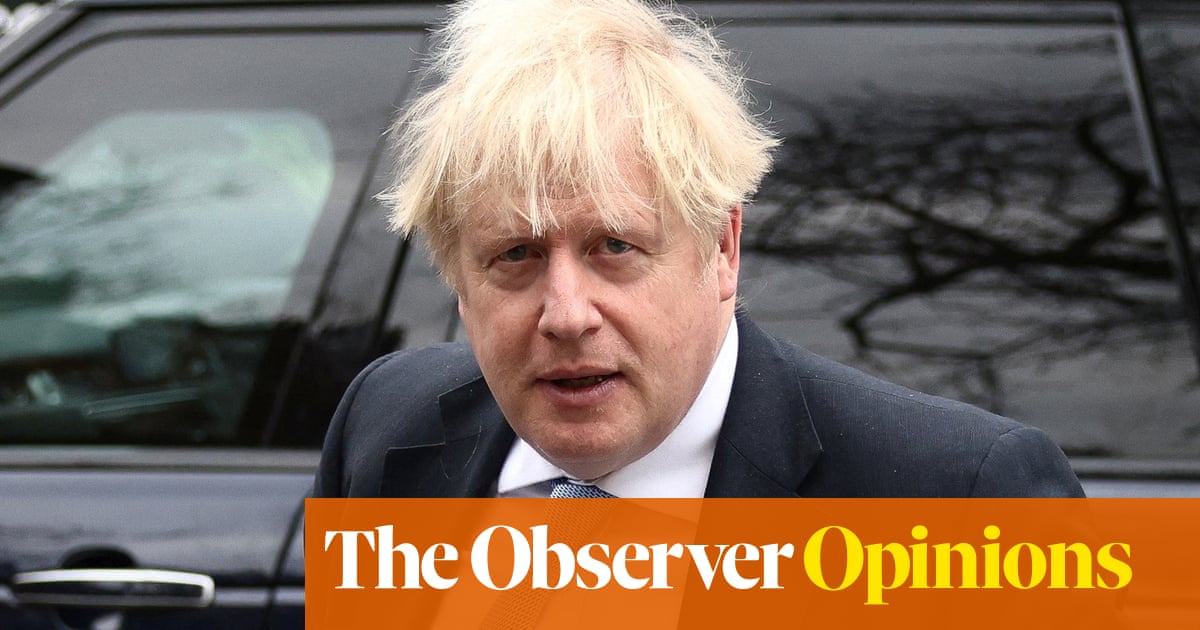
hen Boris Johnson addresses the nation on Sunday night to unveil his national lockdown plans, it’s not just the public he needs to bring with him: he also needs to convince his own MPs. With the biggest surprise within government being the level of public support for continuing the restrictions on movement, his parliamentary party will prove the harder to persuade.
The coronavirus pandemic means that today’s House of Commons is a virtual one. Only a handful of MPs are allowed in the chamber at any one time; most of them Zoom in from their constituencies. Caucus meetings are not held on the committee corridor but by video conference. Gossip that would have occurred in the members’ tea room either doesn’t materialise or is reduced to WhatsApp and telephone conversations.
As a result, cracks in party morale are not always immediately obvious. But with Dominic Raab announcing yesterday that the lockdown will stay in place ahead of the prime minister’s address, Tory MPs are growing increasingly anxious over the slow pace of lockdown easing. “People have started to get skittish,” explains one.
There had been a hope among the party’s libertarian right that Johnson’s return to work would fast-track the route to normality: he was visibly uncomfortable at the press conferences in the build-up to his announcement of the lockdown on 23 March. Instead, the prime minister has come back to No 10 with a sense of cautiousness. Rather than side with the cabinet hawks, he has outlined an exit strategy that has so far made so-called doves such as Matt Hancock happiest.
The plan – as set out by Johnson last week – to keep the rate of infection (also known as the R) below 1, does not leave much room for manoeuvre in the coming weeks. The fact that the death toll is now more than 30,000 means within Downing Street there is a strong sense of caution over any easing.
Yesterday the papers splashed with headlines declaring “Lockdown Freedom” and “Happy Monday” in anticipation of the easing of restrictions – Johnson is expected to relax exercise rules and encourage more manual workers to return – but there is little expectation of a drastic change in the short term.
The problem is, a growing number of MPs – including around two-thirds of the cabinet – are less cautious. So far only a handful of MPs have gone public with their frustrations. The former European Research Group chair Steve Baker has called on the prime minister to provide a clear exit strategy to end this “absurd, dystopian and tyrannical” lockdown, while Iain Duncan Smith has warned of a permanent scarring to the economy if it goes on much longer.
For now, a lot of the frustration is being levelled at the government’s scientific advisers, with Imperial College’s Neil Ferguson – who stepped down this week for breaching social distancing guidelines – a particular target. “The Tory party has decided it hates the lockdown. We can’t blame the PM so we’ve decided to blame the advisers,” explains one fed-up MP.
The would-be rebels fall into two camps: those who, like Baker, view it as an assault on individual freedoms, and MPs concerned about the economic costs. There’s a worry that, with other countries opening up, the UK could be left behind. The prime minister’s former business adviser Andrew Griffith – elected as an MP in December – has warned that every day the UK economy is in lockdown, and its competitors aren’t, means lost business.
“I’ve come to the conclusion we’re completely fucked,” says one MP. “There were people who said the government would get credit for its response. That’s not going to happen now, and we haven’t even had the economic cost yet.”
With polling suggesting that public support for continued strict social distancing is high, questions are being asked over the furlough scheme. “It’s easy to like lockdown if you are being paid close to the same to stay at home as you would to go to work,” says one MP. Another adds: “People like lockdown? Wait until the furlough scheme ends.” With the chancellor looking at ways to bring the scheme to a gradual close, there’s a concern that, without a clear strategy for reopening businesses across different sectors, mass unemployment beckons.
Johnson could turn things around on Sunday by setting out a clear outline for the next few months – but as one MP puts it, expectations are “very high”.
Others still hold the view that it’s time to cut the government some slack. “I might not like lockdown but the current figures just don’t suggest we should be rushing to relax things,” says a more supportive Tory MP.
Should the situation deteriorate, one MP predicts that the government could start to lose parliamentary votes. Labour could in time join with Tory rebels to try to force the Commons to return.
And a lost vote could be a sign of things to come. With a majority of 80, Johnson remains in a strong position. But, under him, No 10 doesn’t devote much time to keeping MPs on side, and the problems are racking up. Many MPs are still stung over a reshuffle that left a number of ambitious middle-aged politicians on the sidelines. The vote due this summer on allowing Huawei to help build the UK’s 5G network is on course to be lost – with moderate MPs now taking a hardline stance on Chinese influence in the wake of coronavirus.
Meanwhile, any increase in taxes to pay off the debts caused by the crisis could be a hard sell. “What they don’t realise is a lot of the new intake haven’t spent years planning for high office. They’ll just do what they think is right,” one MP told me.
Even if Johnson can turn around the mood in his party on Sunday night, his party management problem may be only just beginning.
Katy Balls is the Spectator’s deputy political editor












